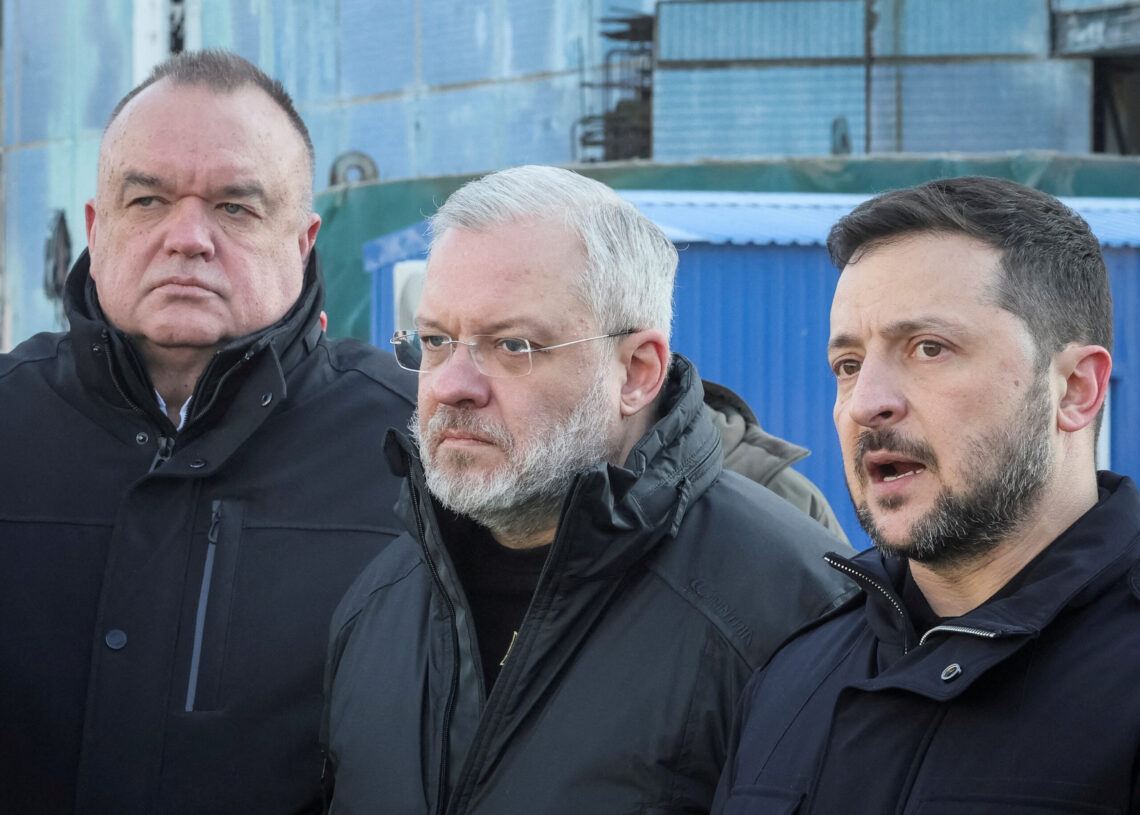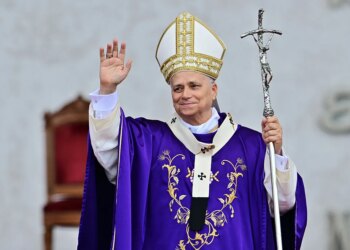KYIV — Ukraine’s justice minister has been suspended from his duties by the government amid a wide-ranging corruption probe into an alleged kickback scheme in the nuclear power sector.
German Galushchenko was energy minister until July and a key member of President Volodymyr Zelensky’s government. According to statements by prosecutors, one of those indicted in the probe used his relationship with the then-energy minister to engage in criminal activities.
KYIV — Ukraine’s justice minister has been suspended from his duties by the government amid a wide-ranging corruption probe into an alleged kickback scheme in the nuclear power sector.
German Galushchenko was energy minister until July and a key member of President Volodymyr Zelensky’s government. According to statements by prosecutors, one of those indicted in the probe used his relationship with the then-energy minister to engage in criminal activities.
Prime Minister Yulia Svyrydenko announced Galushchenko’s suspension and said he would be replaced by Lyudmila Suhak, the deputy minister of justice for European Integration.
In a statement, Galushchenko said he agreed with the move. “I am not clinging to my position as minister and will not cling to it. I believe that suspension for the duration of the investigation is a civilized and correct scenario.”
The decision to suspend Galushchenko from his role came after discussions with Zelensky and Svyrydenko, who agreed he could not continue to serve as minister under such circumstances, a Ukrainian official said.
Galushchenko “says he’s not guilty, so he’ll have all possibilities to prove it,” said the official, who spoke on the condition of anonymity to freely discuss a sensitive political moment. Zelensky supports Ukraine’s internal fight against corruption and will not intervene in the case, allowing it to play out through the country’s legal system, the official added.
Galushchenko “has not been notified as a suspect in this case, so everything remains in the political sphere rather than the legal one, and no formal charges have been filed so far, which is quite strange.”
Since the pro-democracy Maidan protests in 2014, rooting out the pervasive corruption in Ukraine has been a major demand of the population. Over the summer, however, Zelensky attempted to curtail the independence of the bodies set up to fight corruption, prompting protests. He eventually backed down.
The National Anti-Corruption Bureau and Specialized Anti-Corruption Prosecutor’s Office began their announcements of the probe on Monday, describing a scheme that netted its perpetrators about $100 million in kickbacks from contracts signed by Ukraine’s state nuclear energy company, Energoatom.
NABU officials said that the investigation, given the code name “Midas,” took place over 15 months and involved 1,000 hours of audio recordings and about 70 searches. Some of the contracts in question were for structures to protect energy installations, detectives said.
The probe shocked Ukraine’s political establishment and appeared to reach high levels of government. Among those named as suspects was Zelensky’s confidant and onetime business partner Tymur Mindich, and the home of Galushchenko was searched.
On Tuesday, prosecutors named seven suspects, including Mindich and Ihor Myronyuk, an adviser to Galushchenko.
On Wednesday, Dmytro Basov, executive director for security at Energoatom, appeared at an arraignment as a suspect in the case. Basov and Myronyuk, whose hearing began Tuesday, denied the charges against them.
The Ministry of Economy, meanwhile, announced that there would be an entirely new supervisory board for Energoatom within a week and the selection would take place in cooperation with Group of Seven countries. The ministry added that Energoatom would also undergo a comprehensive audit that would be submitted to law enforcement officials.
Ukraine’s progress on fighting corruption has been closely scrutinized, especially by its European partners evaluating the country’s hopes to join the European Union.
In the United States, Republicans opposing supporting Ukraine have often cited the issue of corruption as well.
Russia — which has deeply embedded corruption issues of its own — has long used the corruption issue in an attempt to discredit Ukraine and seized on the latest revelations.
Kremlin spokesman Dmitry Peskov said Wednesday donor countries “had taken note” of the latest corruption issues.
“These countries are becoming increasingly aware that a significant portion of the money they take from their taxpayers is being stolen by the Kyiv regime,” he told journalists.
On Wednesday, Kvartal 95, the production company that Mindich and Zelensky co-owned before Zelensky became president — and was still one of Ukraine’s best-known comedians — distanced itself from the corruption investigation.
“There is currently a lot of information in the public space related to one of the co-owners of the Studio Kvartal 95, who has found himself in the spotlight,” the company said in a statement.
“These events are not related to the work of the Studio, its content or the team,” adding that the co-owner, who was not named, “has a legal relationship with the studio” but did not “participate in its activities” or “influence the content or decisions of the team.”
Tymofiy Mylovanov, head of the Kyiv School of Economics and an adviser to the presidential administration, resigned from the Energoatom supervisory board on Tuesday, saying that he had demanded greater transparency, but to no avail.
“I demanded results, not explanations of processes,” Mylovanov wrote Tuesday evening on Facebook, before the board was dissolved. “I was told that I was toxic, biased and ‘demanding the impossible.’”
Mylovanov said the investigation “should have been a wake-up call” for the board but there had been “no awakening.” Instead, he said, “there is a slumber and the hope that it will somehow work out.”
Natalia Abbakumova in Riga, Latvia, contributed to this report.
The post Ukraine justice minister suspended in nuclear energy corruption probe
appeared first on Washington Post.




